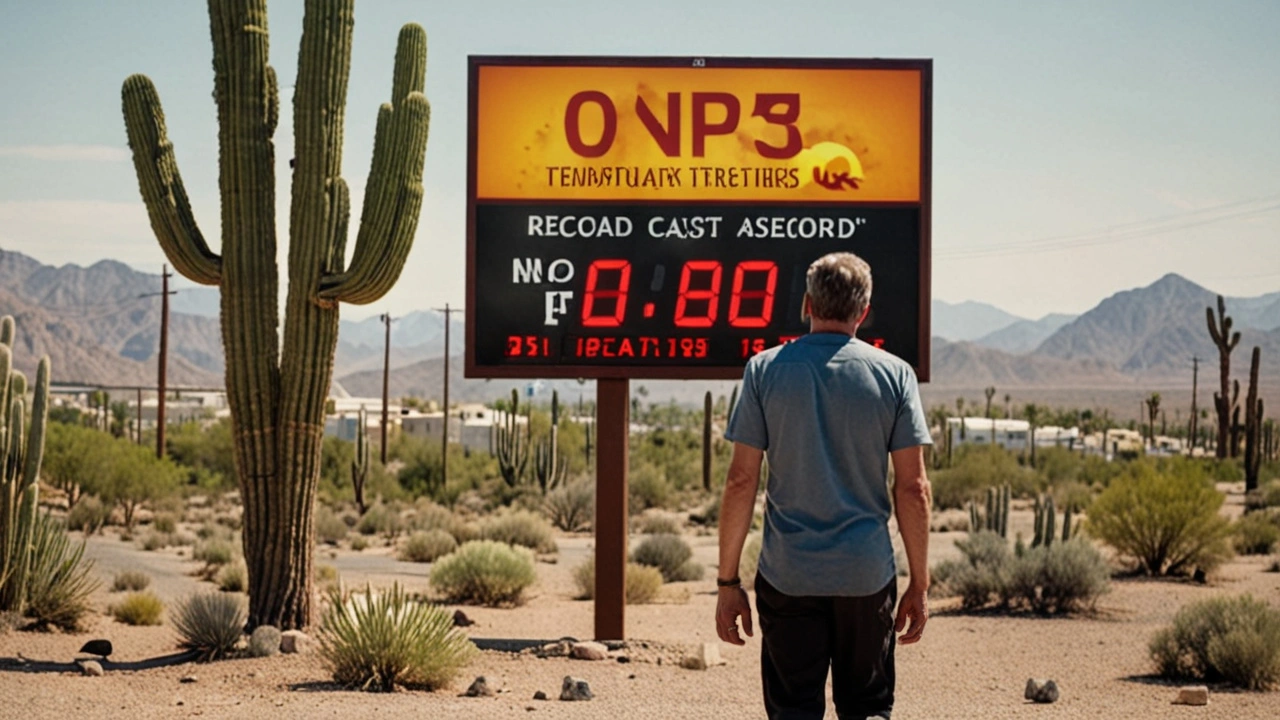Record Temperatures
Record temperatures are more common now. You probably noticed hotter summers and more frequent heatwaves. This page explains what a "record temperature" means, why they matter, and what you can do right now to protect yourself, your family and your community.
What counts as a record temperature?
A record temperature is the highest or lowest reading verified at an official weather station. Meteorological agencies such as the South African Weather Service, the World Meteorological Organization (WMO) and national services in other African countries confirm records. They check the instrument, station history and nearby data to rule out errors. So if you hear "new national record," it means experts have reviewed the reading before announcing it.
Records can be local (one town), national or global. A local station might register a very hot day that doesn't become a national record. Still, local records matter for health services, farmers and city planners.
Why are records climbing?
The climate is warming. Average global temperatures have risen about 1°C since pre‑industrial times, and that pushes more days into record territory. Urban heat islands, less rainfall, and stalled weather patterns also make extreme heat worse in places. When records fall, it often means added strain on power grids, water supplies and health services.
Power outages during heatwaves make things harder. If your area has scheduled cuts or unreliable supply, plan ahead: cool down rooms before outages and have backup water and battery power for medicines or fans.
What should you do if a record temperature alert is issued? Start with simple, practical moves.
- Drink water before you feel thirsty. Keep small bottles handy and offer water to older relatives and neighbours. Never give very cold water to someone showing severe heatstroke signs — get medical help first.
- Stay out of the sun between 11:00 and 16:00 if you can. Shift outdoor chores to early morning or evening.
- Wear lightweight, light-coloured clothes and a hat. For work outdoors, take more breaks and use shade where possible.
- Keep your home cooler: close curtains on sun-facing windows, open windows at night to let cooler air in, and use fans efficiently. If you have air conditioning, set it between 24–26°C to balance comfort and energy use.
- Never leave children, older adults or pets in a parked car. Temperatures inside a car rise fast and can be deadly.
If someone becomes confused, faints, has very dry skin or stops sweating, treat it as an emergency. Move them to shade, cool their body and call emergency services right away.
Want to track records? Follow your national weather service, check WMO updates and use reliable local forecasts. These sources give verified alerts and advice. If your community faces frequent record heat, push local leaders for cooling centres, tree planting and heat action plans.
Record temperatures are a real challenge, but small, planned steps reduce risk. Stay informed, check on neighbours, and prepare for power or water disruptions during hot spells. That simple readiness makes a big difference when temperatures soar.
- July 9, 2024
- Comments 11
- Science

